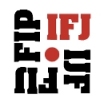The International Federation of Journalists (IFJ) joins its partner organisations in Sri Lanka in expressing disappointment at yesterday’s decision by a three-member bench of Sri Lanka’s Supreme Court, to decline leave to proceed in a case filed under the country’s fundamental rights provisions against the blocking of certain websites.
The petition was moved by the Free Media Movement (FMM), an IFJ affiliate, and by two of its elected office-bearers in their individual capacities, after the Government of Sri Lanka (GoSL) introduced a requirement in December 2011 that all websites that carry news and current affairs content on the country be registered.
Refusal to comply with the registration rules led to the blocking of four websites.
In arriving at its decision, the Supreme Court considered the contentions made by the GoSL counsel, that registration was needed to ensure that the websites did not carry defamatory material. In clearly identifying the persons responsible, website registration would provide the basis for any aggrieved individual to seek remedy for offensive content.
Freedom of expression, the GoSL pointed out, was not an absolute right and could be restricted on grounds specified in the Constitution of Sri Lanka. Moreover, none of the websites that had complied with the registration rule had suffered any form of restraint or impediment.
The GoSL also argued that the two individual petitioners did not have the authority under the constitution of the FMM to litigate on behalf of the body.
The petitioners argued that the two individuals, though elected office-bearers of the FMM, were petitioning the court in their individual capacities as citizens, whose right to access information and share opinions and ideas over the internet was being blocked.
A number of legal experts have held that the right to information can be read into the constitutional provisions on freedom of expression as an implicit intention. And if any restrictions are to be introduced on the exercise of this freedom, they have to be done so under law. The directive requiring the registration of websites had been issued without an enabling law, whether in the form of a parliamentary enactment or subordinate legislation.
It has been argued that the mere fact that a number of website owners have registered in compliance with the directive, does not create a law.
As for the issue of vilification or defamation, there was no material before the court to make such a case against any of the websites represented in the petition.
“We support the FMM in its effort to seek a broader public debate on these issues and if possible, to secure a reversal of the directive seeking website registration”, said the IFJ Asia-Pacific.
“The power of regulating the flow of information, once granted, could easily be misused. Sri Lankais in need of an environment which permits a broad range of opinions and ideas to be heard”.
For further information contact IFJ Asia-Pacific on +612 9333 0950
